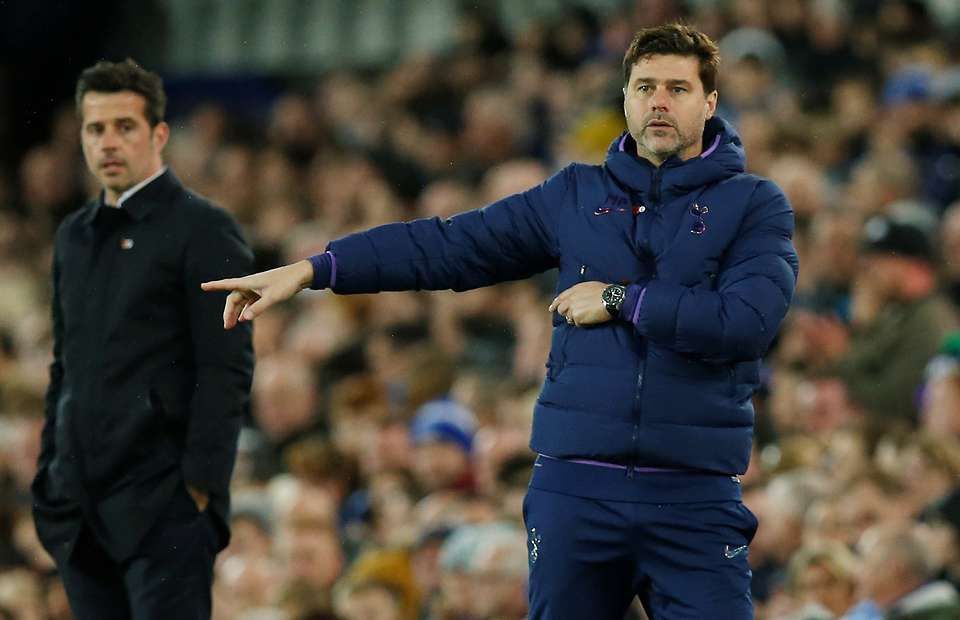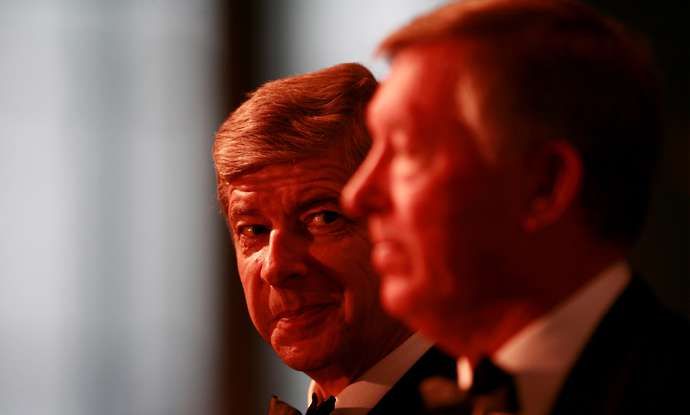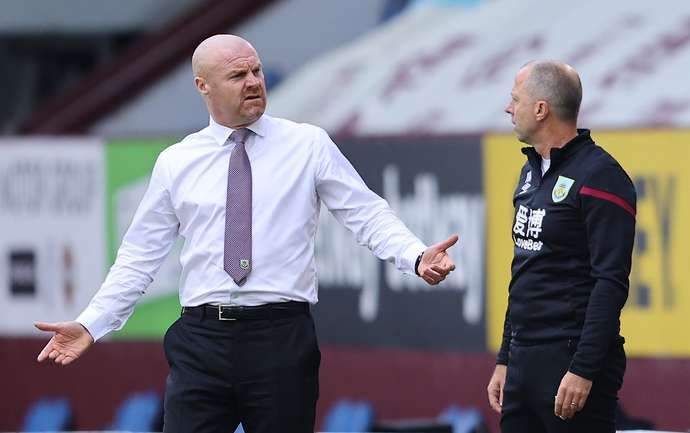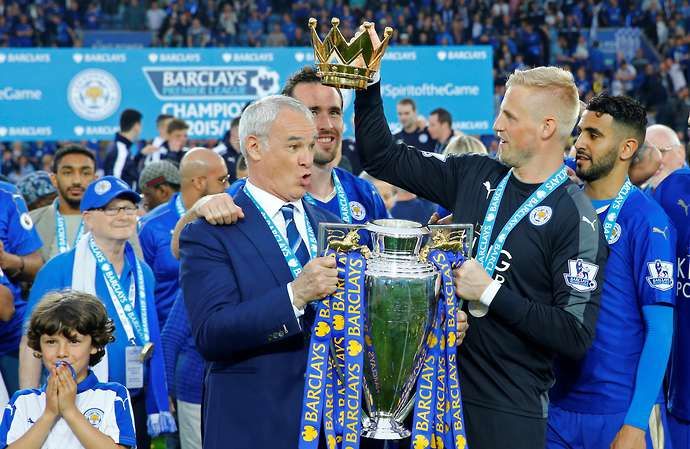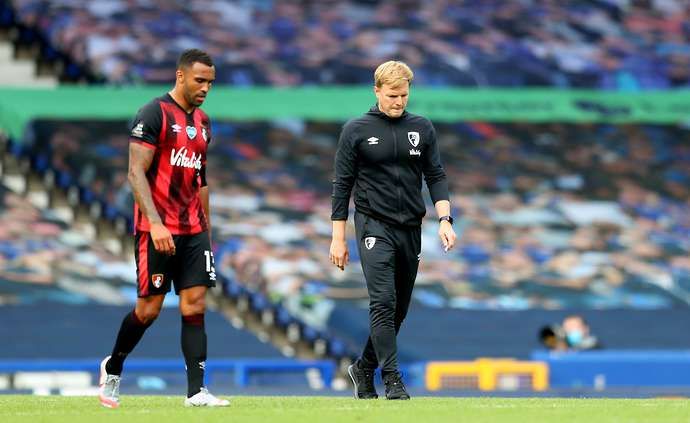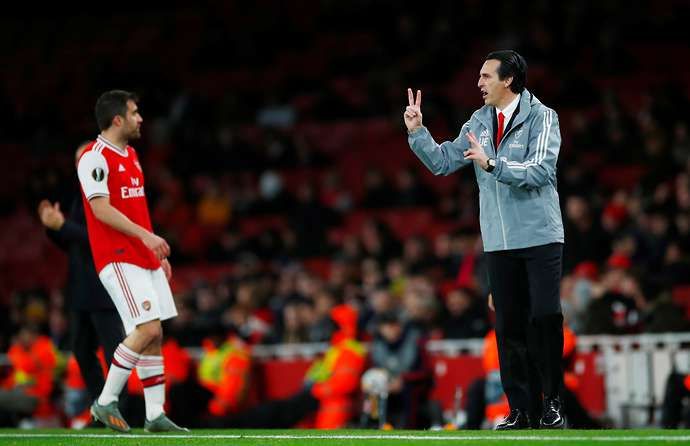What is loyalty? According to the Cambridge dictionary, they define it as your feelings of support or duty towards someone or something.
Apply that to football, however, and it's a trait that's now often lacking.
Gone, so it would seem, are the days of proper club legends. No longer do you have Tony Adams at Arsenal, Steven Gerrard at Liverpool or John Terry at Chelsea for instance.
Across the European leagues, those days have also been eradicated. Players like Francesco Totti and Carles Puyol, two individuals who spent their careers plying their trade for one very specific team are no more.
It would appear that loyalty has well and truly disappeared.
In terms of managers, that has arguably never been more true.
Sir Alex Ferguson and Arsene Wenger enjoyed over 20 years in the Premier League with Manchester United and Arsenal, but come the climax of the 2019/20 campaign, the longest-serving head coach has only been in his post for seven campaigns.
Seven seasons in charge of a football club is impressive in modern football, so hats off to a certain Sean Dyche who has guided Burnley expertly in the top-flight.
Loyalty to a manager has never been so thin. The toxic nature of social media ensures that even the best of coaches are hounded after a defeat.
Team selections are slated a minute following their release, tactics are ridiculed and substitutions laughed at - football is certainly no easy business.
That's because every minute detail is now analysed down to the final segment, with the game we all know and love becoming merely about results.
If you don't deliver, you're out the door. It's almost as cutthroat as the Vikings.
In recent years, we've seen some rather harsh sackings. Claudio Ranieri lost his job at Leicester just months after guiding his team to a miraculous league win, before Mauricio Pochettino was shown the exit door by Daniel Levy despite reaching the Champions League final.
Though, at the same time, it wasn't really surprising - that's what we've come to know with the game of football.
For the last 14 years, we've seen managerial sackings reach unparalleled levels in the top-flight with firings sitting well over double figures.
It's become part and parcel of the game, whether we like it or not.
In 2017/18, a record was set as there were a colossal 20 managerial changes over the course of the season, whether it be permanent arrivals or interim caretaker coaches, the levels reached dizzy heights.
Meanwhile, in 2008/09 and 2013/14, the number sat at 18.
Clearly, this is not a new problem, it's one that's been hitting the Premier League for well over a decade now.
The positives, however, is that things may be improving. After all, the 2019/20 term saw the fewest changes and sackings for 14 years. Relief at last as three-quarters of the league kept their head coach at the club.
In total, just five sides got rid of their manager throughout the season, the lowest since 2005/06, while there were 11 changes in total (including caretakers) - the fewest since 2006/07. Not including caretakers, you have to look at 2005/06 again for a fewer degree of changes.
This might not be a landmark moment quite yet, but it perhaps demonstrates that officials and directors are willing to give more time to their head coaches.
That wasn't the case at Arsenal and Watford. The former sacked Unai Emery before handing the job on an interim basis to Freddie Ljungberg. Of course, Mikel Arteta eventually joined.
Though, for the Hornets, they were fine evidence of the fact that loyalty no longer exits - sacking Javi Gracia, Quique Sanchez Flores and then Nigel Pearson with just two matches remaining.
It was a tactic that didn't work for Watford, who joined Norwich and Bournemouth in being relegated to the Championship.
The Canaries and the Cherries, led by Daniel Farke and Howe, chose not to sack their head coaches. It's a decision that you have to respect but quite possibly, they could have done with some fresh ideas.
Farke was brave this term but ultimately it didn't pay off. For the Bournemouth boss, a ruthless run of injuries this season and naive spending in the transfer market was their downfall.
Loyalty paid off for some - none more so than Ed Woodward at Manchester United. Ole Gunnar Solskjaer was criticised at the start of the season but turned things around spectacularly, losing just one of his last 22 matches at Old Trafford.
Given the power of the Red Devils, it would have been easy to make a change. Instead, they stuck with it and eventually earned their rewards - a place in the Champions League.
It's remarkable to think that the 2019/20 campaign saw the fewest managerial changes in 14 years.
Is it a sign that loyalty is improving in football? Quite possibly.
Though, we all know how quickly things can change. If come the end of the next season the number of sackings drops again, we can start to believe that directors have improved their mindset for the better.
Roll on the new campaign.




















